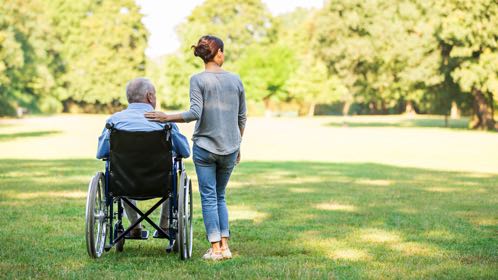Depression Code: What We Say vs. What We Mean

If you’re living with depression, or you know someone who is, you’re likely familiar with the code words used to mask the severity of the condition.
There are a lot of reasons why people may feel the need to cover up what they’re thinking or feeling — even if it’s something they want you to know.
There is a stigma in our culture surrounding mental health. We’ve made strides over the years, but we still have yet to fully break away from outdated ways of thinking so that people in need can get the proper help.
The code words came naturally to me as I tried to cope with issues I didn’t understand. I feared the undesirable outcomes I saw play out on television and in movies.
In hindsight, as I look back on my journey to healing, I see all of the opportunities I had to open up and discuss my depression with others.
Rather than speak honestly about my depression, I used code words like:
- I’m fine.
- I’m just tired (or I’m exhausted).
- I’m just having a bad day.
- I’m really stressed out right now.
All of these code words boiled down to one thing I desperately wanted people to know. At the same time, however, I feared to tell them:
- “I’m not OK. I’m not sure why and I’m terrified.”
For so long, I didn’t understand my symptoms. I didn’t know why I was tired all the time or why I didn’t enjoy my favorite things anymore. Maybe I just needed more sleep. Or what if I had a terrible disease that was affecting my health? I didn’t have any answers. The anxiety of not knowing made it even harder to say the things I wanted to.
Sometimes there’s comfort in avoiding difficult conversations with a simple statement like, “I’m fine.” This is especially true when you’ve never spoken about the issue before.
The depression code can become a reflex, making it even harder to speak your truth. It can wear away at you and cause frustration for the people in your life who want to connect with you and provide support.
Try to be mindful and catch yourself when you use these words. Sometimes the code is a sign that something else is going on that needs further exploration.
Here are three ways to deepen the conversation:
Speak to a mental health therapist. They are professionally licensed, have undertaken years of study, and have qualifications that can help you work through your depression code.
Try using photos that help express what you’re feeling. This can alleviate the pressure of needing to find the right words or explicitly discuss your experience with depression. It also allows people to connect and better understand what you’re going through, especially if they’ve experienced similar thoughts or feelings.
Connect with a community that gets it. If you’re worried that your loved ones won’t truly understand, look into joining an online or local support group. Many people are going through what you are going through; hearing their journey may inspire (and guide) you to take the necessary steps to break the code. By connecting with others in your position, you may find you’re able to have more in-depth, meaningful conversations.
Meanwhile, if you are a friend or family member, simply be present. Let your loved one know that you are there to listen without any judgment. Sometimes, simply asking them how you can help is all you need to do. Even just letting them know you love them can have a huge impact.
The takeaway
It’s vital to acknowledge how difficult this journey is and that you’re doing the best you can.
Be gentle with your loved ones and yourself as you work to understand and deal with your depression.












